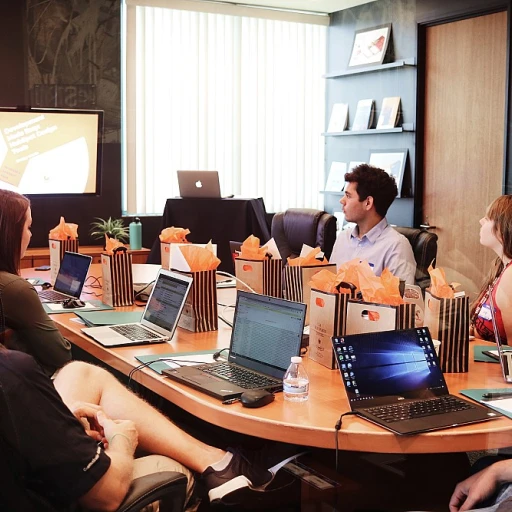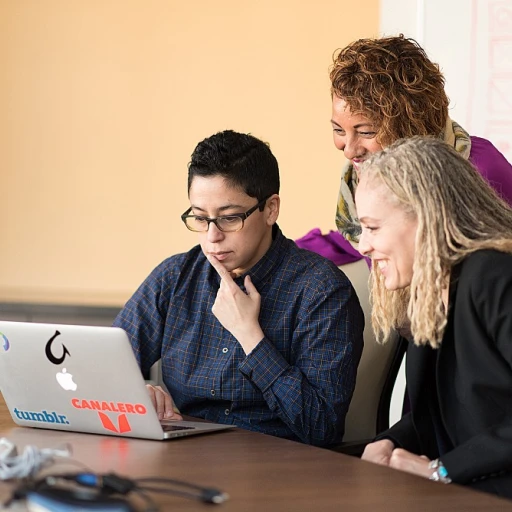
Understanding the basics of recruit ai in candidate sourcing
How AI is Changing the Way We Source Candidates
Recruitment has always been about finding the right talent at the right time. Today, artificial intelligence (AI) is transforming the way recruiters identify and engage with potential candidates. Instead of relying solely on manual searches or traditional recruitment tools, organizations are turning to AI-powered platforms to streamline the hiring process and improve candidate experience.
AI in candidate sourcing means using advanced algorithms and machine learning to analyze large volumes of data. These systems help recruiters screen candidates more efficiently, identify top talent, and reduce time to hire. With recruitment automation, recruiters can focus on building relationships and making informed decisions, rather than spending hours on repetitive tasks.
- Data driven decisions: AI tools process real time data from multiple sources, helping recruiters learn more about candidates and match them to job requirements.
- Recruitment software integration: Many platforms, like Zoho Recruit, offer features such as automated candidate screening, interview scheduling, and analytics to help recruiters save time and improve the recruitment process.
- Enhanced candidate experience: By automating routine steps, AI allows recruiters to focus on personal interactions, making the hiring process smoother for candidates.
For those new to this technology, many recruitment tools offer a free trial or request demo option, making it easier to explore how AI can help identify top candidates and optimize your hiring process. If you want to read more about the basics and potential of AI in recruitment, you can learn more in this detailed overview.
Key benefits of using recruit ai for sourcing candidates
Unlocking Efficiency and Precision in Talent Acquisition
AI-powered recruitment tools are transforming how recruiters identify top candidates and streamline the hiring process. By automating repetitive tasks and leveraging data-driven insights, these platforms help organizations save time and focus on engaging with the right talent. Let’s explore the main benefits that AI brings to candidate sourcing and recruitment.
- Accelerated Screening: AI recruitment software can screen candidates at scale, analyzing resumes and applications in real time. This means recruiters spend less time on manual sorting and more time connecting with potential candidates who truly fit the job requirements.
- Enhanced Candidate Experience: With recruitment automation, candidates receive timely updates and feedback, improving their overall experience. Tools like chatbots can answer questions and schedule interviews, making the process smoother for both sides.
- Data-Driven Decisions: Machine learning algorithms analyze vast amounts of data to help recruiters identify top talent based on skills, experience, and cultural fit. This reduces bias and supports fairer, more objective hiring decisions.
- Reduced Time to Hire: By automating sourcing and screening, AI platforms help organizations fill roles faster. This is crucial in competitive markets where top candidates may be off the market quickly.
- Scalability and Flexibility: Recruitment tools powered by AI can adapt to changing hiring needs, whether you’re recruiting for a single role or scaling up for multiple positions. Features like free trials and book demo options let teams test and implement solutions that fit their workflow.
Recruiters can also use AI to learn from past hiring data, continuously improving their recruitment process. Platforms such as Zoho Recruit and other recruitment software offer integrations that support end-to-end recruitment automation, from sourcing to candidates interview scheduling.
For a deeper dive into how AI assistants are enhancing talent booking and candidate sourcing, read more about AI assistants in talent booking.
By embracing these AI-driven recruitment tools, organizations can identify top candidates more efficiently, improve the candidate experience, and ultimately hire the best talent for their teams.
Common challenges when implementing recruit ai
Obstacles in Adopting AI for Sourcing Candidates
Integrating AI into the recruitment process can be a game changer, but it’s not without its hurdles. Recruiters and hiring teams often face several challenges when trying to use recruitment automation and machine learning tools to identify top talent. Here’s what you need to know about the common roadblocks and how they impact your ability to hire efficiently and fairly.
- Data Quality and Availability: AI-driven recruitment software relies on large volumes of accurate data. If your candidate data is incomplete or outdated, the tools may struggle to screen candidates effectively or identify potential candidates for the job. This can slow down the hiring process and reduce the accuracy of candidate matching.
- Integration with Existing Platforms: Many organizations use a mix of recruitment tools and platforms, such as Zoho Recruit. Ensuring that new AI tools work seamlessly with your current systems can be complex and time-consuming, often requiring technical support and custom development.
- Bias in Algorithms: While AI can help make the recruitment process more data driven, it can also unintentionally reinforce existing biases if the underlying data or algorithms are flawed. This can impact candidate experience and lead to less diverse hiring outcomes.
- Change Management: Recruiters and hiring managers may be hesitant to trust AI tools, especially if they are used to traditional methods. Training and change management are essential to help teams learn how to use new recruitment automation solutions and get the most out of features like real time candidate screening or automated interview scheduling.
- Cost and ROI: Investing in advanced recruitment software or booking a free trial or request demo can be costly, especially for smaller organizations. It’s important to evaluate the return on investment and ensure the tools will truly help save time and improve the recruitment process.
For a deeper look at how to overcome these challenges and effectively source top technology executive talent, read this guide on sourcing top technology executive talent. It offers practical advice for recruiters looking to leverage AI and recruitment automation while maintaining a strong candidate experience and identifying top candidates for every role.
Best practices for leveraging recruit ai tools
Maximizing Efficiency with the Right Recruitment Tools
Selecting the right recruitment software is crucial for recruiters aiming to save time and identify top talent. With so many platforms and tools available, it’s important to focus on those that offer real time data, machine learning capabilities, and seamless integration into your existing recruitment process. Recruitment automation can help screen candidates more efficiently, reducing manual tasks and allowing recruiters to focus on engaging with potential candidates.Data-Driven Decision Making
Recruitment tools powered by AI and machine learning can analyze large volumes of candidate data quickly. This enables recruiters to make data driven decisions throughout the hiring process. For example, using AI to match job requirements with candidate profiles helps identify top candidates faster and more accurately. Recruiters can also use these insights to improve the overall candidate experience, ensuring that the best talent moves smoothly through the recruitment process.Continuous Learning and Adaptation
AI-driven recruitment platforms are constantly learning from new data. This means that the more you use these tools, the better they become at predicting which candidates are likely to succeed in a given role. Recruiters should regularly review the performance of their recruitment software and adjust their strategies based on the insights provided. This ongoing learning process helps refine sourcing techniques and improves the quality of hires over time.Practical Steps to Get Started
- Request a demo or book a free trial with leading recruitment tools to see how they fit your hiring needs.
- Integrate your chosen platform with your existing recruitment process for a smoother workflow.
- Leverage automation features to screen candidates and schedule interviews, saving valuable time.
- Use data analytics to track key metrics like time to hire and candidate experience.
- Encourage your team to learn and adapt to new technologies for continuous improvement.
Optimizing Candidate Experience
A positive candidate experience is essential for attracting top talent. Recruitment automation can help by providing timely updates, personalized communication, and a streamlined interview process. By focusing on both efficiency and candidate satisfaction, recruiters can build a strong employer brand and improve their chances of hiring the best candidates.Ethical considerations in ai-driven candidate sourcing
Balancing Automation with Human Judgment
AI-driven recruitment tools are transforming the hiring process, but ethical considerations must guide their use. While machine learning and data-driven platforms help recruiters identify top talent and screen candidates efficiently, it’s crucial to ensure that automation does not replace human judgment. Recruiters should use AI to support, not substitute, their expertise in evaluating potential candidates. This balance helps maintain a fair and positive candidate experience throughout the recruitment process.
Ensuring Fairness and Reducing Bias
One of the promises of recruitment automation is to reduce unconscious bias in sourcing and hiring. However, AI systems can unintentionally reinforce existing biases if trained on biased data. To address this, organizations should regularly audit their recruitment software and tools to ensure fairness. Transparent algorithms and diverse data sets are essential for providing equal opportunities to all candidates, regardless of background. Recruiters must stay vigilant and learn how their chosen platforms make decisions about who advances to the interview stage.
Protecting Candidate Data and Privacy
Recruitment platforms process large volumes of personal data in real time. Protecting candidate privacy is a top priority. Recruiters and hiring teams must comply with data protection regulations and clearly communicate how candidate information will be used. Secure recruitment tools and regular data audits help safeguard sensitive information, building trust with candidates and enhancing the overall recruitment process.
Transparency in AI Decision-Making
As recruitment automation becomes more prevalent, candidates and recruiters alike should understand how AI-driven decisions are made. Providing explanations for why certain candidates are shortlisted or rejected helps maintain transparency. This not only improves the candidate experience but also allows recruiters to refine their processes and ensure that the tools are helping them hire the best talent for the job.
Continuous Monitoring and Improvement
Ethical use of AI in recruitment is not a one-time effort. Recruiters should continuously monitor the performance of their recruitment tools, request demos, and take advantage of free trials to evaluate new features. Feedback from both candidates and hiring managers can help identify areas for improvement. By staying informed and proactive, recruiters can leverage AI responsibly to save time, enhance the recruitment process, and deliver better outcomes for everyone involved.
Future trends in recruit ai for candidate sourcing
Emerging Technologies Shaping Recruitment
AI in recruitment is evolving rapidly, and the next wave of innovation is already influencing how recruiters identify top talent. Machine learning algorithms are becoming more sophisticated, allowing recruitment software to analyze vast amounts of data in real time. This helps recruiters screen candidates faster and more accurately, improving the overall hiring process.Personalization and Candidate Experience
Recruitment automation is moving toward more personalized candidate experiences. Tools are being developed to tailor communication and job recommendations to each candidate, making the recruitment process feel more human and engaging. This not only helps attract potential candidates but also improves the chances of hiring top talent by keeping candidates interested throughout the process.Data-Driven Decision Making
Data-driven recruitment is no longer just a buzzword. Platforms like Zoho Recruit and other recruitment tools are integrating advanced analytics to help recruiters make better decisions. These tools can identify patterns in candidate data, predict time to hire, and even suggest the best interview questions based on the job requirements. Recruiters can now learn from every hiring cycle, refining their approach to save time and improve results.Integration and Automation
The future of AI in recruitment will see even tighter integration between recruitment software and other HR tools. Automation will handle repetitive tasks, freeing up recruiters to focus on building relationships with candidates. From scheduling interviews to sending follow-up emails, recruitment automation will streamline the process and reduce manual work.Continuous Learning and Adaptation
AI-powered recruitment platforms are designed to learn and adapt over time. As more data is collected from each hiring process, these tools become better at identifying top candidates and predicting successful hires. This continuous improvement means that recruiters can rely on their tools to help them stay ahead in a competitive talent market.- Machine learning enhances candidate screening and shortlisting
- Personalized candidate journeys improve candidate experience
- Data-driven insights support better hiring decisions
- Automation saves time and reduces manual errors
- Continuous learning helps identify top talent faster












